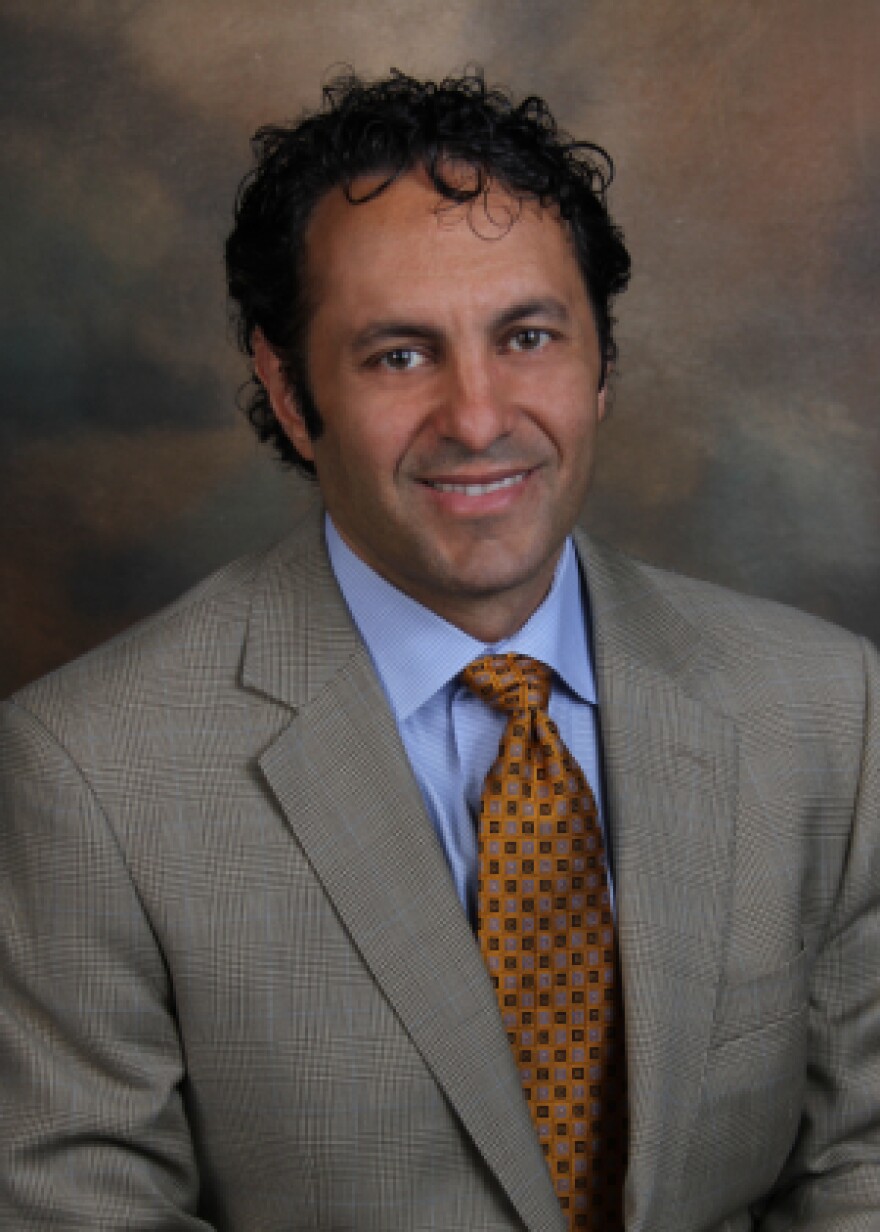Since 1964, February has been federally designated as American Heart Month. About 2,300 Americans die from some form of cardio vascular disease every day. Many more survive. "It felt like someone hit be in the chest with a sledgehammer." said John Turco, who thought he was a healthy 63 year old until the day he became one of almost 800,000 Americans who had a heart attack last year. He said he was exercising a bit, but was pretty lax when it came to his diet. "I really don't know for certain what caused the heart attack, I'm assuming it's the diet because I was exercising on a regular basis. After all that's all we can really control is our diet and our exercise."
One thing that Turco could not control is his family history of heart disease. He says his father had five heart attacks before he died. "His death certificate says 'cancer' because he unfortunately was also slipping away to cancer. But I was there when he died. He died of a heart attack."
"If you have family history, if your blood pressure is high , if your cholesterol is high, if you smoke, if you have diabetes, those are the big risk factors for heart disease" said Dr. Mark Grise, the Director of the Cardio-Catheterization Lab at Sacred Heart Hospital. He says that even though Mr. Turco didn’t have the tradition warning signs of a coming heart attack, there are some symptoms people should watch out for. those include the feeling of pressure on your chest that may radiate down the left arm or up to the jaw. Shortness of breath and sweating are also classic symptoms of an impending heart attack. "Men tend to get that classic presentation and pre-presentation [more than women]. Clearly, if people are having those symptoms they need to see their doctor ASAP."

And there are significant differences between the way most women present with heart disease than men. "Women do tend to have what we call atypical symptoms. It can be back pain, shortness of breath, just not feeling well. We don't quite know why that is, but clearly that's seen. And the other thing is women tend to get heart disease about 10 or 15 years later, when their estrogen [levels fall during and after menopause]. So they kind of catch up to men a little later."
Janice Palmer was an active 60 year old when she had her heart attack four years ago. "I thought it was indigestion or something like that, because usually it would go away. "I didn't know at the time but I [realized] after the heart attack, that two or three months [before the heart attack] I was having this [feeling], like when you swallow something backwards, or the wrong way. That's what it would feel like."
And although Palmer also had a family history of heart disease, it took some convincing before she finally went to the ER at Sacred Heart. "I [was on my way to a job in a yard], that's what I do, I do landscaping. And I couldn't make it to the car. And I came back in [the house] and I couldn't get [the feeling) to go away. It just got worse and worse. It was like a huge squeezing. I can't say there was pain, it was just squeezing going on (in my chest]. And I guess it took about an hour to convince me to go [to the hospital]." Once she arrived at the Sacred Heart Emergency Room she was told she was having a heart attack and was admitted for treatment. "I think the first thing I remember is Dr. Grise telling me to breath."
Since then Palmer has recovered and is back at work as a landscaper. That work gives her a fair amount of exercise. She is also paying much more attention to her cholesterol and her diet. "I just pay attention because I know what it is now and I haven't had any issues since. And, I feel very grateful for that."
Cardio Vascular disease is the number one killer of both men and women in the U.S, accounting for one out of every three deaths. Among African Americans the risk is even higher, with nearly half of both men and women already living with some form of heart disease. Dr. Grise says there are important steps everyone should take to protect themselves including knowing your numbers. "If your LDL cholesterol is high, especially if you have risk factors, then you want to know what your bad cholesterol [number] is." Dr. Grise says people should consult with their primary care physician and decide how aggressive they want to be in getting the LDL number down. "If you don't have any risk factors, you would really like to see that bad cholesterol at less than 130. If you've had problems with your heart in the past, if you have diabetes, if you have multiple risk factors, then you want that bad cholesterol to be low, and in some people we want it real low, like less than 70.
Dr. Grise also says controlling your blood pressure is very important. "We [recently] got new guidelines [for blood pressure] where what we used to think was ok is probably not. Ideally, we would love to have everybody's blood pressure less than 120 over 80. you can treat [your blood pressure] with lifestyle modifications. Diet and exercise is important for everybody. There are a lot of people out there, myself included, that actually need help with medicine to get their blood pressure to the targets that we want."
According to the American Heart Association, the cost of cardiovascular diseases and stroke in the US are estimated at more than $329.7 billion; that includes both health expenditures and lost productivity. Globally, the annual economic impact of heart disease is projected to be over a trillion dollars by 2030.





